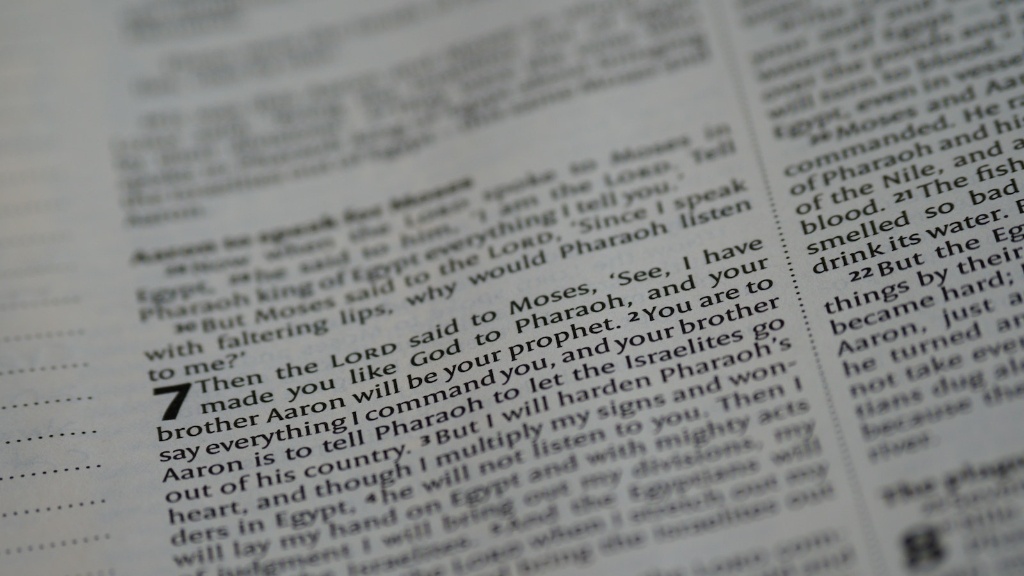The Bible has a lot to say about polygamy, as it appears in both Old and New Testaments. Polygamy is defined as marriage to more than one partner, with the most common arrangement being a man taking multiple wives. In the Bible, polygamy is presented in diverse ways. In the Old Testament, it was largely approved of, with many of the patriarchs receiving multiple wives, but in the New Testament, it is mostly condemned.
In the Old Testament, Polygamy was closely associated with kings and rulers. King Solomon was renowned for having 700 wives and 300 concubines, which was seen as an extreme example of polygamy. Other notable figures such as Abraham, Jacob, Gideon, and Esau had multiple wives as well. It was not only men that practiced polygamy—some women also had multiple husbands. The most famous examples are Abishag, the Shunamite woman, and the Levite’s concubine.
The Old Testament generally condoned polygamy, although it was liable to some restrictions. For example, a man would not be permitted to take another man’s wife, and a man was only allowed to take multiple wives if he could provide for them adequately. Although there were some prohibitions, many of the Bible verses in the Old Testament refer to polygamy in a positive light and it was generally accepted.
In the New Testament, polygamy is largely condemned. One of the most prominent verses is Matthew 19:4-6 which states, “He who created them from the beginning made them male and female. And said, ‘For this cause should a man leave father and mother and cleave to his wife, and they two should become one flesh?’ So they are no longer two, but one flesh. What therefore God hath joined together, let not man put asunder.” This verse clearly states God’s view on marriage as being between one man and one woman.
In addition, the New Testament includes several letters written to churches by the Apostle Paul in which he warns against polygamy, reminding the people that Jesus taught that marriage should be between one man and one woman. These verses make it clear that the church and its faithful members should not practice polygamy. Furthermore, the New Testament also claims that monogamy is more fitting for Christians, as it better reflects the image of the relationship between Jesus and His church.
From the Bible, it is clear that although polygamy was accepted and practiced in the Old Testament, it is mostly condemned in the New Testament. In the Old Testament, it was more of a social arrangement than a religious one, but in the New Testament, it is seen as contrary to the teachings of Jesus and the will of God. Although polygamy was part of the culture at the time, it was soon seen as the wrong practice, and the Bible teaches that monogamy is the proper and ideal form of marriage.
Divorce And Polygamy
The Bible also has a lot to say on the subject of divorce and polygamy. According to the Bible, a man is not supposed to divorce his wife unless there has been marital unfaithfulness or a serious problem in the marriage. Deuteronomy 24:1-4 states: “When a man takes a wife and marries her, and it happens that she finds no favor in his eyes because he has found some uncleanness in her, and he writes her a certificate of divorce, puts it in her hand, and sends her out of his house, when she has departed from his house, and goes and becomes another man’s wife, if the latter husband detests her and writes her a certificate of divorce, puts it in her hand, and sends her out of his house, or if the latter husband dies who took her as his wife, then her former husband who divorced her must not take her back to be his wife after she has been defiled; for that is an abomination before the LORD, and you shall not bring sin on the land which the LORD your God is giving you as an inheritance.”
These verses make it clear that upon divorce, a man is not to remarry his ex-wife, and the same concept applies to polygamy. The Old Testament is full of examples of men who take multiple wives, but in the New Testament it is different, as Jesus states that monogamy is the only acceptable form of marriage.
Spiritual Aspects Of Polygamy In The Bible
The Bible also speaks about the spiritual aspects of polygamy. The Bible does not explicitly condone or condemn polygamy, but God’s intention for marriage is clear—it is to be between one man and one woman. Hosea 1:2-3 states, “When the LORD first spoke through Hosea, the LORD said to Hosea, “Go, take to yourself a wife of whoredom and have children of whoredom, for the land commits great whoredom by forsaking the LORD.” This verse suggests that taking a woman of whoredom is a type of spiritual adultery, and this begs the question as to whether or not God approves of polygamy. Later in Hosea, the prophet speaks of God’s wrath at those that practice polygamy.
The spiritual aspect of polygamy is further explored in Malachi 2:14-15, “Yet you say, ‘For what reason?’ Because the LORD has been witness between you and the wife of your youth, with whom you have dealt treacherously; yet she is your companion and your wife by covenant. But did He not make them one, having a remnant of the Spirit? And why one? He seeks godly offspring. Therefore take heed to your spirit, and let none deal treacherously with the wife of his youth.” This verse is interpreted to mean that God seeks to protect the sanctity of marriage, and that He desires that men and women remain faithful to the marriage covenant.
Conclusion Of Polygamy In The Bible
In conclusion, the Bible has a lot to say about polygamy, both in the Old and the New Testaments. The Old Testament generally condones it, although it was restricted to some degree, and the New Testament largely condemns it. The Bible states that God seeks to protect the marriage covenant, and He desires that people remain faithful to the one spouse that He created for them. While the Bible does not explicitly forbid polygamy, it is clear that God intends for marriage to be between one man and one woman.
Polygamy In The Life Of Abraham
Abraham, one of the key Old Testament figures, is a well-known example of a polygamous man. He had two wives, Sarah and Hagar, and there are many examples in the Bible of his relationship with them. Abraham loved Sarah deeply and she was his closest companion, but he did nevertheless have sexual relations with Hagar, of which Sarah was jealous. In some ways, Abraham’s polygamous relationship was seen as a blessing rather than a curse—Abraham’s descendants through Sarah (the Israelites) were seen as the chosen people of God.
In addition to being an example of polygamy, Abraham is also an example of faithfulness to the marriage covenant, as despite having two wives, he remained faithful to Sarah. This is emphasized in the book of Genesis, wherein God speaks to Abraham and promises to bless him both for his faithfulness and for his willingness to obey God’s commands. The lessons that we can learn from Abraham’s story are clear—polygamy is not God’s ideal, but it is possible to remain faithful to God even in a polygamous union.
Polygamy In Other Religions
In addition to Christianity, other religions and cultures have practiced polygamy throughout the ages. The most well-known example is in the Islamic faith—in Islam, a man can take up to four wives, under the conditions that they can provide financial support and not mistreat them. Buddhism also generally holds a positive view of polygamy, although this is often less emphasized. Other religions such as Hinduism and Sikhism also allow for polygamy, although it is not as common in practice.
In cultures that allow for polygamy, it is not always seen in the same way as it is in the Bible. Polygamy is often seen as a way to provide social stability and economic support to women in the community. In some cultures, a woman may choose to accept multiple husbands in order to secure her long-term safety and financial security.
Polygamy has also been seen in some cultures as an acceptable way to allow for a larger family. In China, for example, polygamy is commonly practiced by wealthy men who want to ensure that more of their descendants will inherit their wealth. In some African countries, polygamy is seen as a way for a man to provide for the women in his family and ensure their health and wellbeing.
Benefits Of Polygamy
Despite its generally negative view in the Bible, there are some potential benefits to polygamy that must be considered. In certain societies, polygamy can be an effective method of increasing the resource supply to a family. In polygamous cultures, there is often more social assistance and support available to those in need, which can lead to better health outcomes. In addition, polygamy can also increase the size of a family, meaning that more people can share the work and the joy of raising children.
Polygamy can also provide men and women with social mobility, allowing an individual to move up in society by marrying a person with a higher status. It can also provide a way for single or widowed women to increase their economic security and provide a supportive network in their community. In some cultures where women have few economic options, polygamy can provide them with the opportunity to gain financial stability and social capital.
However, it is important to note that polygamy is not without its drawbacks. Polygamy can lead to jealousy and strife among the wives, as well as resentment among children from different wives. In addition, it can place a great burden on the husbands, as they are responsible for providing for multiple spouses and their children. Polygamy is also seen by many as a violation of human rights and can lead to women being treated as property.
Conclusion
Polygamy is an age-old practice that has been accepted in some societies and criticized in others. While the Bible clearly states that marriage is meant to be between one man and one woman, it also presented some examples of polygamy in the Old Testament. In the New Testament, however, it is largely condemned, and the church and its followers are encouraged to remain faithful to one spouse only. While there may be some potential benefits to polygamy, it is important to consider the potential drawbacks as well.





